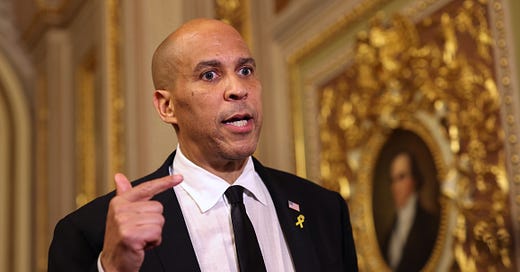
Diane Vargo may look like a fashion model, but she isn’t. For eight years, she’s been the principal of Mesquite Elementary School about 20 miles south of Tucson. It seems like an impressive school. Students from kindergarten through fifth grade can study in English or in a Chinese immersion program. The school has won awards. All seems normal, but as in so many places in 2021, it’s not.
In September, after a student who tested positive for COVID-19 was told he had to quarantine for several days, the boy’s father barged into the principal’s office and demanded that the kid be allowed back into school immediately. “I didn't come here to challenge you, I came here to tell you this is not going to happen.” After the aggressive parent refused to leave, Vargo and her assistant attempted to get help, and were even more alarmed when the intruder told her that others were on their way, warning, “If you keep doing this, we're going to have a big problem.” Two other men did arrive within a few minutes, one carrying military-style zip ties. They told Vargo that they were going to make a “citizens’ arrest.”
As it happens, the intruders were the ones arrested—by the police. Vargo has continued to receive threatening messages, such as an email reading: “Hi. Next time it will be a barrel pointed at your Nazi face.”
The same month, in Michigan, a meeting of the Barry-Eaton District Board of Health was disrupted when a man threatened to make a citizen’s arrest of a county health official after a school mask mandate was announced. That was mild compared with the death threats Genesee County officials have received over masks. And that, in turn, was less serious than what happened in Kent County, where someone tried to run a health official off the road.
Stories of threats and violence aimed at ordinary Americans who are simply serving on school boards, supervising elections, holding public office, opening a mobile vaccine clinic, or having the effrontery to be elected as secretary of state are not new. It’s a mashup of pandemic-induced mania, social media misinformation, Trump-incited disinhibition, and something in the water.
Every now and then, usually through the vehicle of tort law, someone is held accountable, most recently in the case involving the notorious liars at Gateway Pundit. The site is being sued by two election workers, mother and daughter, after Gateway Pundit identified them as the election officials in Fulton County, Georgia who supposedly pulled fraudulent ballots out of suitcases. These malicious lies, according to the pleading, “devastated” their reputations and “instigated a deluge of intimidation, harassment, and threats that has forced them to change their phone numbers, delete their online accounts, and fear for their physical safety.” One went into hiding. And just in time. Crowds with bullhorns showed up at their homes.
The citizen’s arrest has become a theme running through some of the most sinister of the recent plots. It has a long pedigree, originating in English common law. In the U.S., it has been codified in a number of ways by states. Some require that a bystander actually witness a felony in progress to undertake a citizen’s arrest. Others forbid it except in certain situations (such as a shopkeeper holding an armed robber until police arrive). Some critics, like Professor Ira Robbins, have argued that these laws are harmful, giving rise to racial profiling and other harms. The Ahmaud Arbery case would seem to vindicate his warnings.
But the invocation of the citizen’s arrest as an excuse for political violence is new. Trump set this table with his “lock her up” chants in 2016, his accusations of treason against New York Times guest editorialists, the FBI, and anyone else who damaged his fragile psyche. His 2019 Twitter tantrum at Representative Adam Schiff was the gold standard: “I want Schiff questioned at the highest level for Fraud & Treason” he tweeted on a Sunday. He followed up the next morning with one saying, “Adam Schiff illegally made up a FAKE & terrible statement, pretended it to be mine as the most important part of my call to the Ukrainian President. . .Arrest for Treason?”
Back in 2020, when a gang of 14 right-wing nuts, drunk on Trump incitement, plotted to kidnap and possibly murder Michigan Governor Gretchen Whitmer, they claimed that they were actually effecting a “citizen’s arrest.” In a normal world, such a claim would be instantly dismissed as risible. But we’re not in that world. We’re in the world where the sheriff of Barry County, Dar Leaf, who had appeared at the “Michigan Patriot Rally” with at least one of the suspects, seemed to think it had merit. “It’s just a charge, and they say a ‘plot to kidnap’ and you got to remember that," Leaf told a local Fox affiliate. "Are they trying to kidnap? Because a lot of people are angry with the governor, and they want her arrested. So are they trying to arrest or was it a kidnap attempt?”
“Lots of people are angry with the governor,” he said. And then, as if the next words flowed logically, he added “and they want her arrested.” Right, because when we dislike the policies of duly elected officials, we arrest them?
The threats are proliferating. The Washington Post reported that lawmakers were subjected to 3900 threats in 2017. By 2020 that had more than doubled to 8600, and in 2021 the rate rose even faster. As Tim Alberta noted in his Atlantic profile of Representative Peter Meijer, the fear factor in Republican politics has dramatically changed. Without doubt, Republicans displayed a total lack of political courage in dealing with Trump from 2015 to the present. But because they didn’t stand up to him when the consequences would have been merely political, they/we now face a very different climate. Now they must fear for their safety and for that of their families. Describing a colleague who said he couldn’t vote to certify the 2020 election, Meijer said, “Remember, this wasn’t a hypothetical. You were casting that vote after seeing with your own two eyes what some of these people are capable of. If they’re willing to come after you inside the U.S. Capitol, what will they do when you’re at home with your kids?”
Many, perhaps most, of the members of the January 6 mob didn’t conceive of themselves as criminals or coup plotters (in contrast to those in the Oval Office). They thought they were vindicating democracy, not destroying it. As they were storming the Capitol, they were exchanging text and audio messages that reflected the treason talk Trump had normalized. One Army veteran involved in the attack said “We have about 30-40 of us. We are sticking together and sticking to the plan,” according to court documents. Another responded: “You are executing a citizen’s arrest. Arrest this assembly, we have probable cause for acts of treason, election fraud.”
It’s not enough to see these people as revolutionaries or criminals or dupes. Some may be all of those things, but there is a substrate of perverted patriotism here. The frequent invocation of the citizens’ arrest signifies a wish for legitimacy. They yearn to be responsible citizens, upholding the law and the Constitution and the duties of the individual. They have been corrupted, but that’s all the more reason for the rest of the American people to assert their uncorrupted patriotism more boldly. They must get active and defend the election workers, health care workers, school board members, journalists, politicians, secretaries of state, and anyone else who is being intimidated, hounded, or abused by the mob. If patriotism animates only the worst among us, we are lost.











